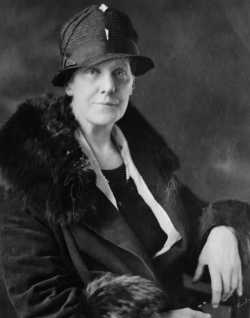
Anna Jarvis is often considered the founder of the modern version of Mother's Day.
She fought against the commercialization of the holiday, working to protect it from "the hordes of money schemers."
Designated as the second Sunday in May by President Woodrow Wilson in 1914, aspects of that holiday have since spread overseas, sometimes mingling with local traditions. She took great pains to acquire and defend her role as “Mother of Mother's Day,” and to focus the day on children celebrating their mothers
But she was not first to want to honor mothers, there were others, albeit with different agendas.
Julia Ward Howe, better known for writing "The Battle Hymn of the Republic," promoted a Mothers’ Peace Day beginning in 1872. For Howe and other antiwar activists, including Anna Jarvis's mother, Mother's Day was a way to promote global unity after the horrors of the American Civil War and Europe’s Franco-Prussian War.
“Howe called for women to gather once a year in parlors, churches, or social halls, to listen to sermons, present essays, sing hymns or pray if they wished—all in the name of promoting peace,” said Katharine Antolini, an historian at West Virginia Wesleyan College
Frank Hering, a former football coach and faculty member at University of Notre Dame, also proposed the idea of a Mother's Day before Anna Jarvis. In 1904 Hering urged an Indianapolis gathering of the Fraternal Order of Eagles to support “setting aside of one day in the year as a nationwide memorial to the memory of Mothers and motherhood.” Hering didn't suggest a specific day or month for the observance, though he did note a preference for Mother's Day falling on a Sunday.
The white carnation was the original flower of Mother’s Day.
“The carnation does not drop its petals, but hugs them to its heart as it dies, and so, too, mothers hug their children to their hearts, their mother love never dying," Jarvis explained in a 1927 interview.
Based on an article by Brian Handwerk,
National Geographic